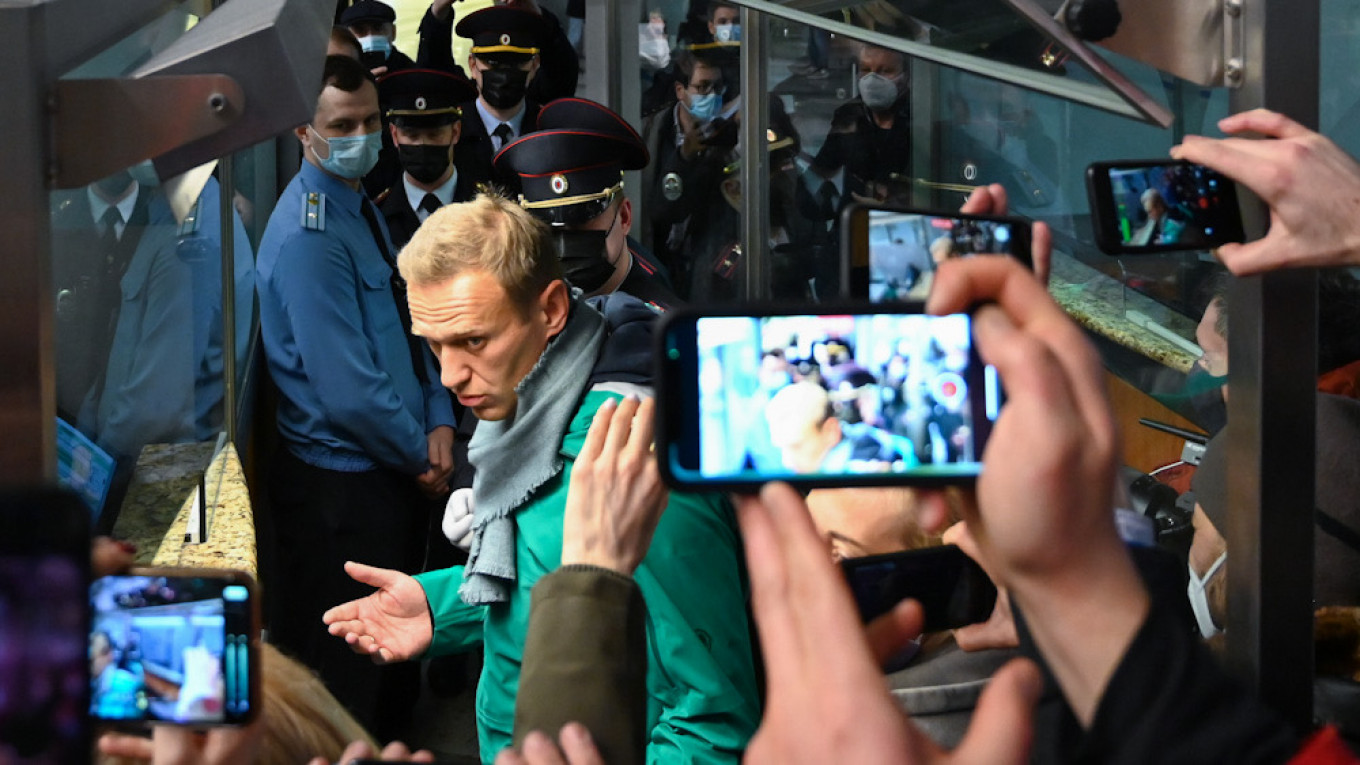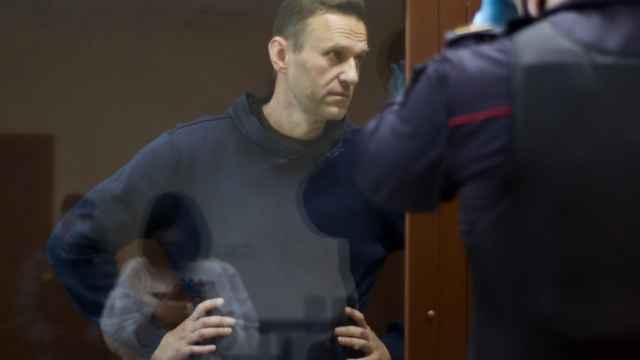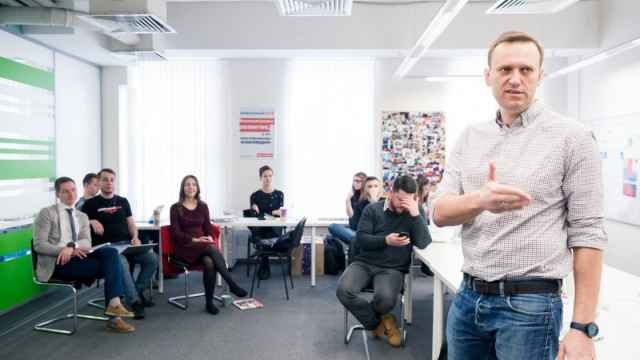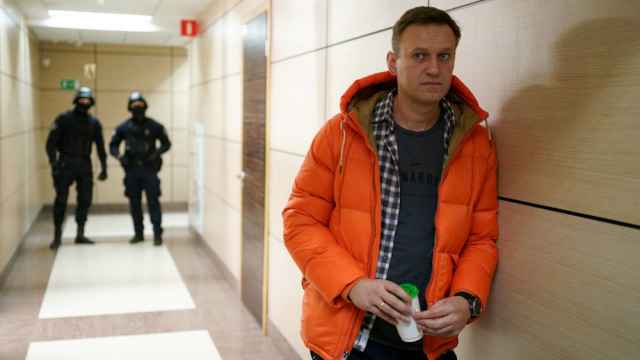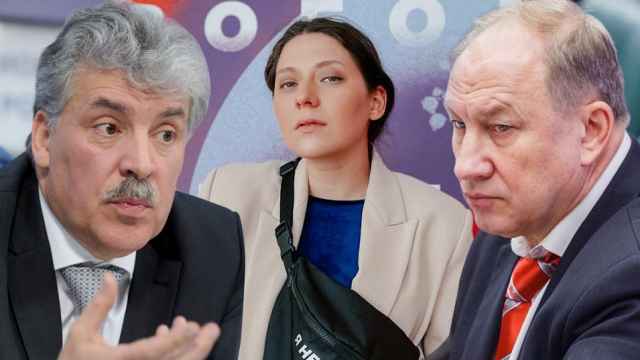World leaders have called on Russia to release prominent opposition figure Alexei Navalny, who was detained minutes after he landed in Moscow following five months of recovery from nerve agent poisoning in Germany.
Below is a selection of international reactions to Navalny’s detention at Sheremetyevo International Airport passport control late Sunday.
— U.S. Secretary of State Mike Pompeo:
“We note with grave concern that his detention is the latest in a series of attempts to silence Navalny and other opposition figures and independent voices who are critical of Russian authorities.”
“Confident political leaders do not fear competing voices, nor commit violence against or wrongfully detain political opponents.”
— Jake Sullivan, U.S. President-elect Joe Biden’s national security adviser:
“Mr. Navalny should be immediately released, and the perpetrators of the outrageous attack on his life must be held accountable.”
“The Kremlin's attacks on Mr. Navalny are not just a violation of human rights, but an affront to the Russian people who want their voices heard.”
Russian Foreign Ministry spokeswoman Maria Zakharova retorted: “Respect international law, don’t infringe on the national legislation of sovereign states and deal with problems in your own country.”
— EU chief Ursula von der Leyen:
"I condemn the detention of Alexei Navalny by the Russian authorities. They must immediately release him and ensure his safety."
"Detention of political opponents is against Russia’s international commitments."
— Charles Michel, European Council president:
“I call on Russian authorities to immediately release him.”
— Josep Borrell, EU foreign policy chief:
“Russian authorities must respect Alexei Navalny's rights and release him immediately. Politicization of the judiciary is unacceptable.”
— Heiko Maas, German foreign minister:
“After his convalescence, Alexei Navalny chose consciously and of his own free will to return to Russia because that’s where he feels his personal and political home is.”
“That he was detained on his arrival by Russian authorities is utterly incomprehensible.”
— British Foreign Secretary Dominic Raab:
“It is appalling that Alexei Navalny, the victim of a despicable crime, has been detained by Russian authorities. He must be immediately released.”
“Rather than persecuting Mr. Navalny Russia should explain how a chemical weapon came to be used on Russian soil.”
— French Foreign Ministry:
“France notes the arrest of Mr. Alexei Navalny in Russia with very strong concern. "Along with its European partners, it is following his situation with the greatest vigilance and calls for his immediate release.”
— Latvian, Lithuanian, Estonian foreign ministries:
“The European Union should react quickly, if he’s not released, then it should consider imposing sanctions against [Russia].”
“Navalny has been deprived of his liberty for his peaceful political activism and exercising free speech. Amnesty International considers him a prisoner of conscience and calls for his immediate and unconditional release.”
— Edward Snowden, former U.S. intelligence contractor and whistleblower:
“Navalny's arrest seems to me a repetition of mistakes made in the Soviet era, seen elsewhere now in the case against [Julian] Assange and the war on whistleblowers. States are developing an allergy to opposition — but systems that cannot accept dissent will not survive it. Let him go.”
— Dmitry Peskov, President Vladimir Putin’s spokesman:
“I’m sorry, was [Navalny] arrested in Germany? I’m not up to date.”
— Russian Foreign Minister Sergei Lavrov:
“We saw how yesterday’s news about Navalny’s return to Russia was seized upon. One can clearly feel the joy with which carbon-copy comments are coming. With joy, because it apparently allows Western politicians to think that they will be able to to divert attention from the deepest crisis in which the liberal model of development finds itself.”
— German Chancellor Angela Merkel:
"The chancellor condemns the arbitrary arrest of Mr Navalny... which violates the principles of the rule of law," Merkel's spokesman Steffen Seibert told reporters, saying Germany called on Russia "to release Mr Navalny immediately."
AFP contributed reporting.
This story is being updated.
A Message from The Moscow Times:
Dear readers,
We are facing unprecedented challenges. Russia's Prosecutor General's Office has designated The Moscow Times as an "undesirable" organization, criminalizing our work and putting our staff at risk of prosecution. This follows our earlier unjust labeling as a "foreign agent."
These actions are direct attempts to silence independent journalism in Russia. The authorities claim our work "discredits the decisions of the Russian leadership." We see things differently: we strive to provide accurate, unbiased reporting on Russia.
We, the journalists of The Moscow Times, refuse to be silenced. But to continue our work, we need your help.
Your support, no matter how small, makes a world of difference. If you can, please support us monthly starting from just $2. It's quick to set up, and every contribution makes a significant impact.
By supporting The Moscow Times, you're defending open, independent journalism in the face of repression. Thank you for standing with us.
Remind me later.


